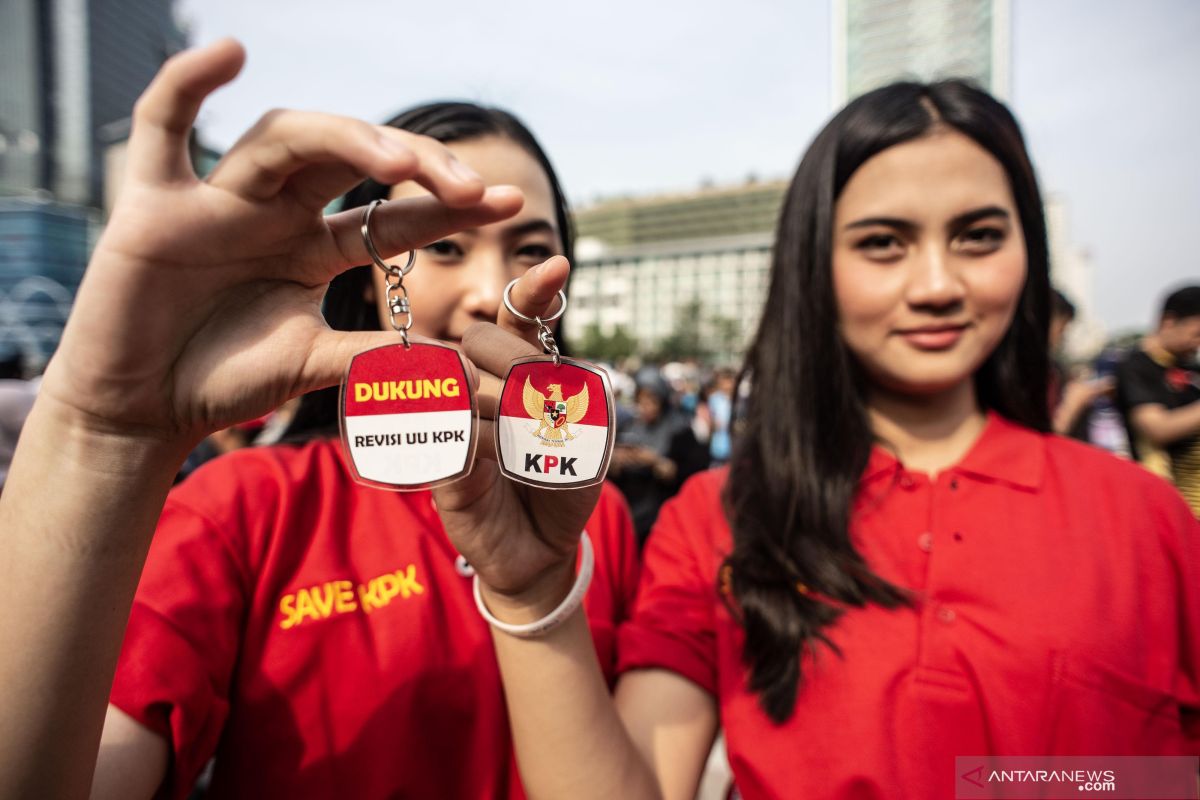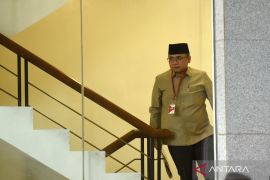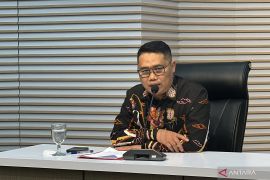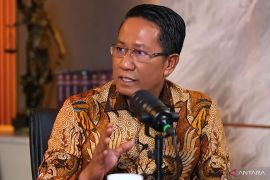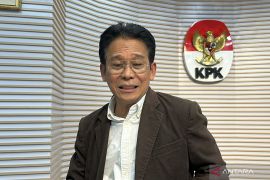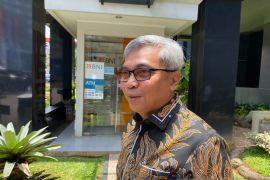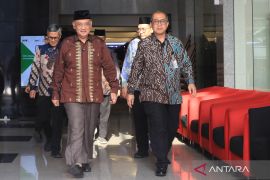I object if the revision of the Law on KPK were to weaken the body by reducing its functions and tasksJakarta (ANTARA) - Indonesian Ulema Council (MUI) Advisory Board Chairman Din Syamsuddin rejected a plan to revise the Law on KPK (Corruption Eradication Commission) if it would, in fact, impinge upon the anti-graft body’s tasks and functions.
"I object to the revision of the Law on KPK on grounds that it would weaken the KPK by reducing its functions and tasks," he informed the press here on Monday.
Moreover, if the revision would facilitate governmental intervention and place the KPK as a subordinate of the government, then it must be rejected, he emphasized.
Related news: House to approve new KPK leaders at Monday's plenary session
Related news: Kalla pins hopes on new KPK leaders working properly
Syamsuddin affirmed that any attempt to weaken the agency is a betrayal to the reform mandate demanding eradication of corruption, collusion, and nepotism.
One and all are keen to witness the KPK work in a serious, correct, consistent, impartial, and independent manner in the fight against corruption practices, he emphasized.
The ex-chairman of Muhammadiyah, Indonesia's second-largest Muslim organization, affirmed his support to the revision if it were to strengthen the agency's tasks and functions.
"Certainly, I support the revision of the Law on KPK as long as the revised law would strengthen the existence, tasks, and functions of KPK in the fight against corruption practices that are rampant in the executive, legislative, and judiciary circles," he noted.
The House of Representatives (DPR) and government have been deliberating over a bill to revise the law on KPK.
The plan to revise the law has fueled pros and cons in the public. Those opposing the revision plan claim it will weaken the authorities of the KPK in its endeavors to end corruption in the country.
Related news: Anti-graft body does not need board of commissioners
Related news: Revision of KPK Law to boost its performance: VP Kalla
The Center for Constitutional Law Studies of the Faculty of Law of the University of Indonesia, in a press statement dated September 15, 2019, expressed its objection of the planned revision.
Mustafa Fakhri, chairman of the Center for Constitutional Law Studies, urged President Jokowi to be consistent in his pledge to backing efforts to strengthen the KPK.
Furthermore, the Indonesian Consumers Protection Foundation (YLKI) vehemently rejected the revision plan of the KPK law, as victims of corruption practices are consumers.
"We strongly protest any attempt to weaken efforts to stop corruption, including the weakening of the KPK institution," YLKI Executive Chairman Tulus Abadi noted in a statement here on Monday.
Translator: Anom P, Fardah
Editor: Rahmad Nasution
Copyright © ANTARA 2019
